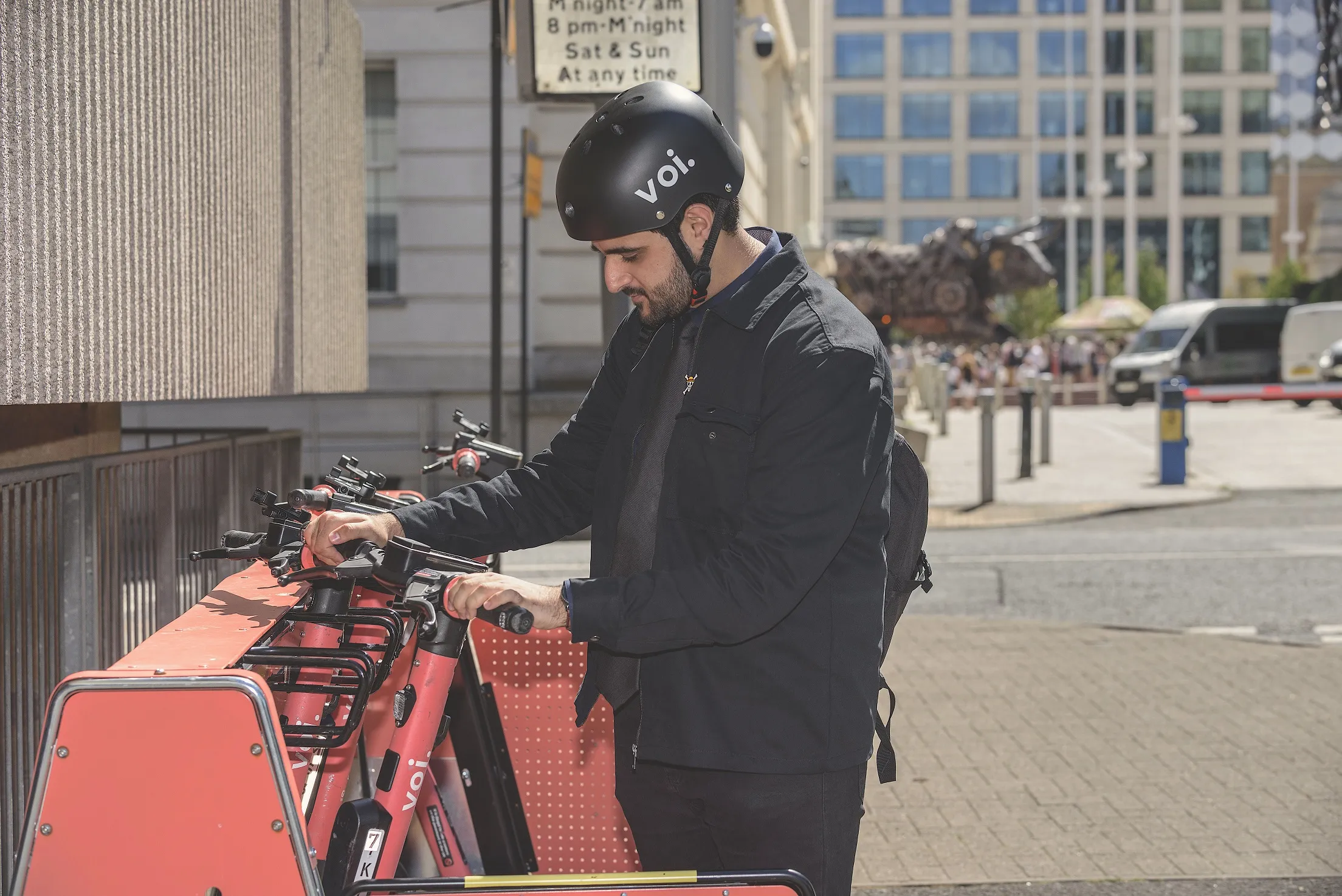
Voi says there were 75,000 commuter journeys on its e-scooters in Birmingham, UK - which plans to become a carbon-neutral city by the end of the decade - last month.
Nearly 17,000 rides took place in the morning between 7-9 am and around 58,000 rides between 4-7 pm.
The company says this means a third of riders in Birmingham use Voi for commuting back and forth to work, and its ridership has risen to nearly 1.8 million in the city since the scheme began in September 2020.
Residential communities across Birmingham - such as Castle Bromwich, Kings Heath, Harborne and Perry Barr - are also embracing micromobility, it says, following the city-wide expansion ahead of the recent Commonwealth Games in the city.
With four in 10 riders using a Voi e-scooter rather than a car, this means more than 680,000 'unnecessary journeys' are being replaced, the firm suggests.
“The number of people using Voi for their daily commute shows the remarkable impact e-scooters are having on Birmingham," says Sam Pooke, senior policy manager at Voi UK&I.
"The expansion in the summer ahead of the Commonwealth Games has unleashed pent-up demand for an alternative to using the car."
But Pooke says this means reliability is key: "Creating change in our town and cities means we must deliver a service that mimics the convenience of using a car - needing to be both flexible and accessible, but greener, so people from all walks of life don't give a second thought to using an e-scooter as part of their daily lives.”
Voi has discounts available for students, NHS staff, emergency service workers, the armed forces, veterans and also for those on a low income.









